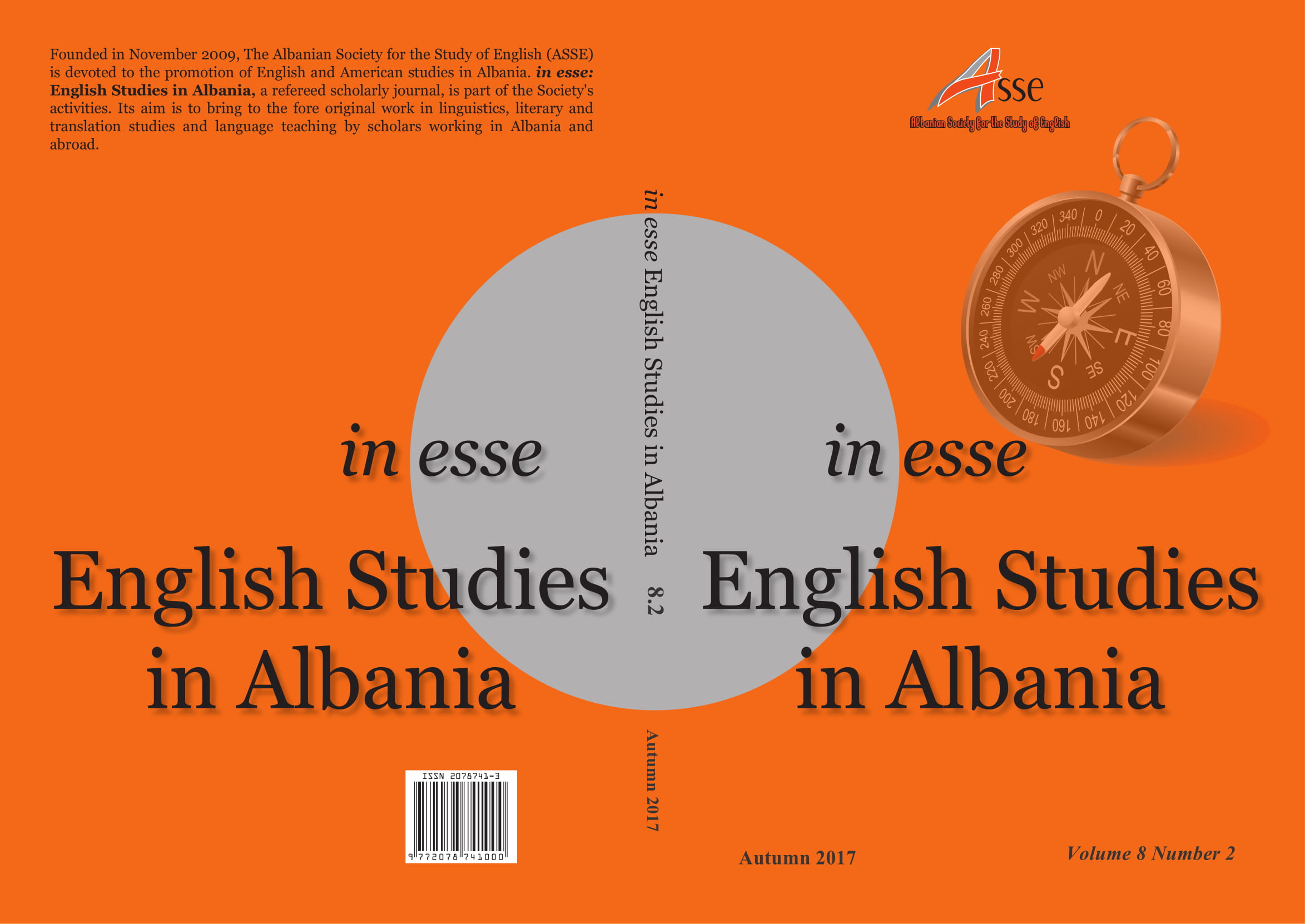Form through history in Sam Selvon’s ‘The Lonely Londoners’
Form through history in Sam Selvon’s ‘The Lonely Londoners’
Author(s): Blerina LaniSubject(s): Language and Literature Studies, Studies of Literature, Lexis, Sociology of Culture, Sociology of the arts, business, education
Published by: Albanian Society for the Study of English
Keywords: West-Indian; post-colonial literature; fabricated language;
Summary/Abstract: Lonely Londoners, written in 1956, brings a “new style and form” in Standard English, introducing a new “language,” a mixture of Caribbean vernacular English with Standard English. The narration takes a vis-à-vis form. Moses, the main character, represents a built-in progress narrator, whose role is fully recognised by the end of the novel. The author’s writing proposes to the reader the everyday language as a form of literature using the direct speech as an instrument for narration. To appreciate form in Sam Selvon’s The Lonely Londoners, it is necessary to know the history and literary tradition before the writing of this book. Therefore, it is important to know that the author is one of the first West-Indian authors to write in Great Britain, and that his new writing finally expresses the living conditions and concerns of a minority whose voice has never been raised before, and heard by the majority.
Journal: in esse: English Studies in Albania
- Issue Year: 8/2017
- Issue No: 2
- Page Range: 33-40
- Page Count: 8
- Language: English

